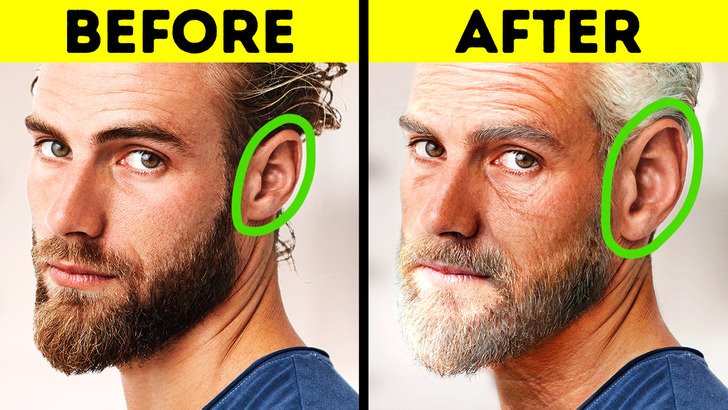22 Times People Pulled Off Next Level Pranks and Just Had to Share Them Online

There is no doubt that the human organism is a busy place, and every day carries a lot of processes, some of which have a surprising impact on our lives. For instance, the sense of smell may play a bigger role in our social interactions than we realize. Our body odor chemistry can predict whether we will become friends with a stranger or not, as individuals who smell similar do get along better. Here are some facts, once again, proving that your body truly is a wonderland.
It is best not to overthink this information if you’re squeamish. But during one’s lifetime, the body produces enough saliva to fill 2 swimming pools, which is about 25,000 quarts.
Did you know that olfactory receptors exist outside the nose? They perform a variety of functions and can also potentially be used in the diagnosis and treatment of various health conditions.
The location and purpose of certain types were concluded as such:
The body has the ability to rid itself of damage when it’s time to create new life. The cells in the embryo all look the same a few days after conception, but as the process of cell differentiation begins, they start to cleanse themselves, thus beginning the rejuvenation process.
That means that we shed between 30,000 and 40,000 skin cells in one hour. It happens because new and fresh skin cells, little by little, push their way to the top layer, and when they do, they die. They eventually fall off and become the main part of the dust.
If you’re a fan of various diets, you might want to rethink your ration. Because when we don’t eat enough, hunger-inducing neurons in your brain start eating themselves. On top of that, starvation can also result in anxiety and even depression.
Your liver is going to be forever young. It has the incredible ability to regenerate after damage. And this useful ability doesn’t decrease as we age. No matter how old we get, your liver will always be, on average, less than 3 years old.
This doesn’t happen because your stomach is very shy. It’s simply because the sympathetic nervous system causes an increase in blood flow throughout your body. There can also be an adrenaline release that makes the blood vessels dilate as well. That’s why when we blush, our stomach blushes with us.
We encounter most new odors in our youth, but we start to associate scents with emotion even before we’re born. The interesting fact, however, is that if we are exposed to some universally disliked smells, like smoke or garlic, in the womb, we can later show a preference for these. And these smells might not seem upsetting, but rather, somewhat comforting.
Your femur, or thigh bone, is the largest bone in your body. And what is more surprising is its capability to resist pressure. It can support 30 times the weight of an adult. Not bad for a bone.

At the end of puberty, human body parts stop growing as long as a person doesn’t have some hormonal imbalance. But this doesn’t apply to all of our body parts. Believe it or not, our noses and ears, which are composed of cartilage, will continue to get bigger throughout our lifetime.
What interesting and not widely-known facts about the human body do you know?











